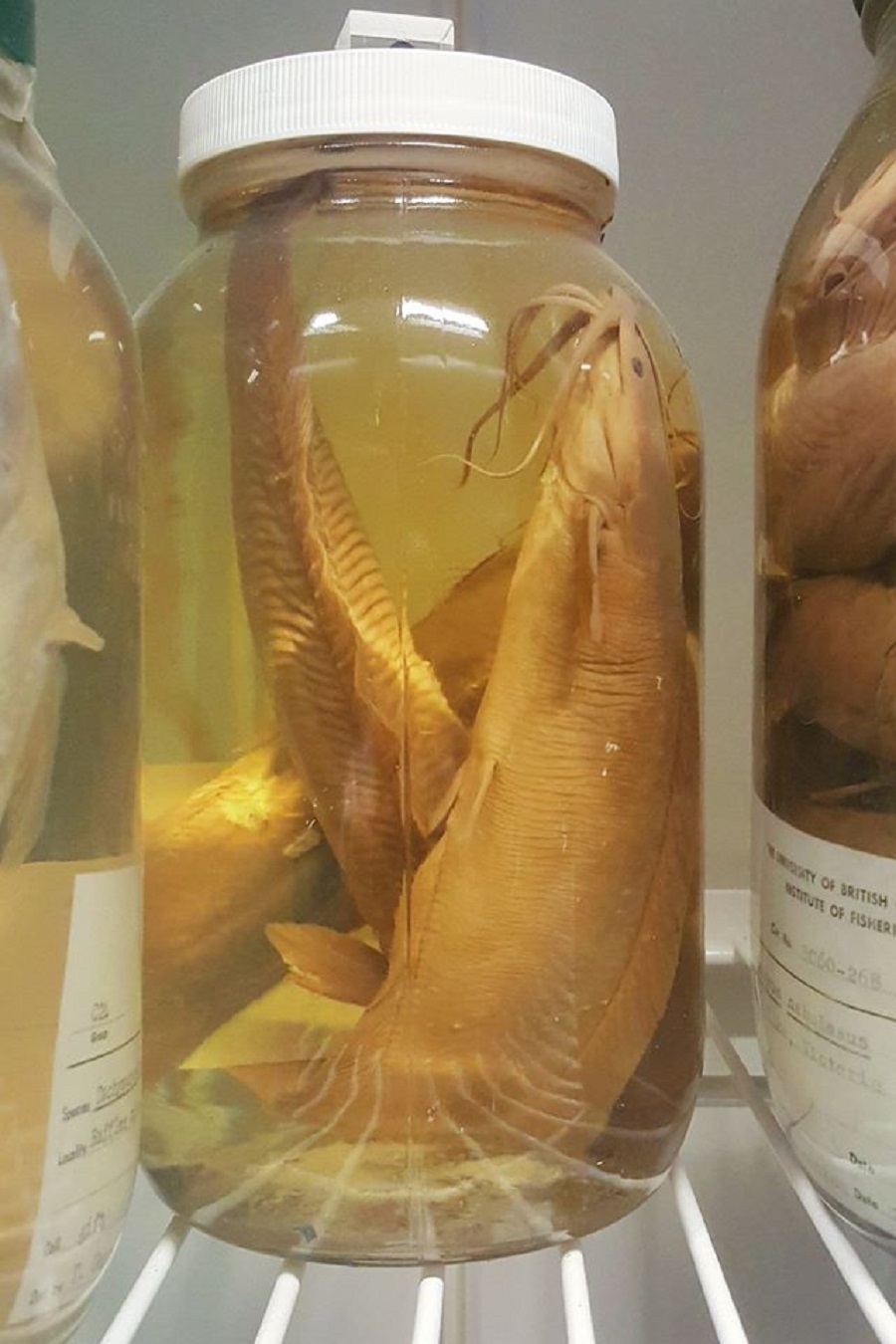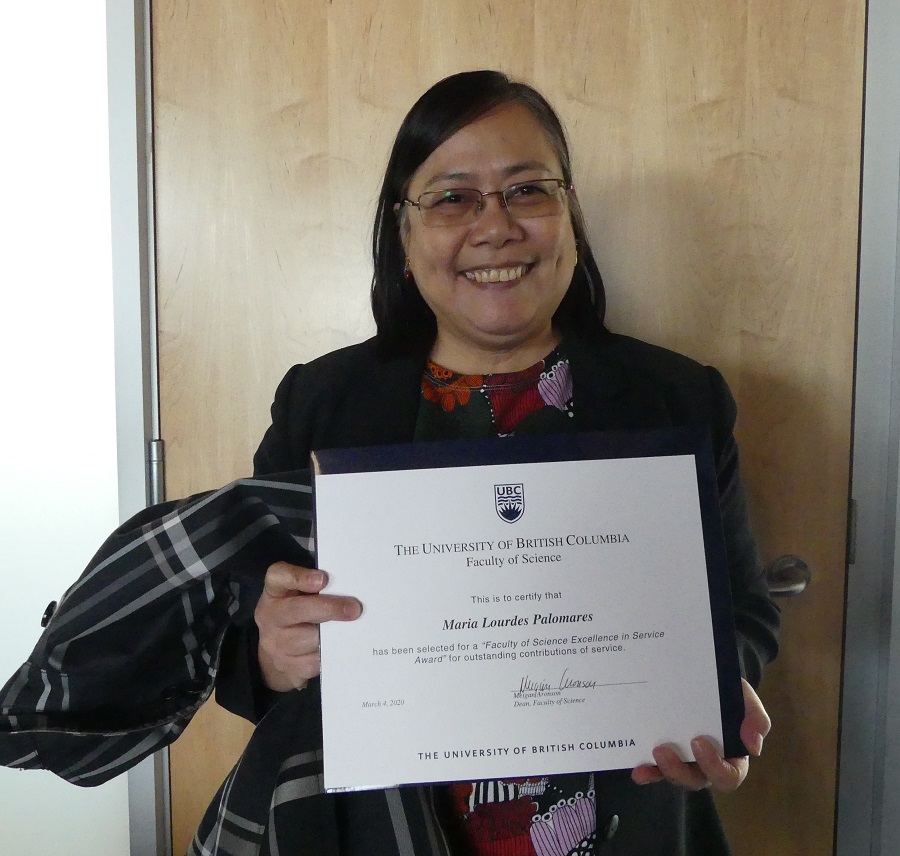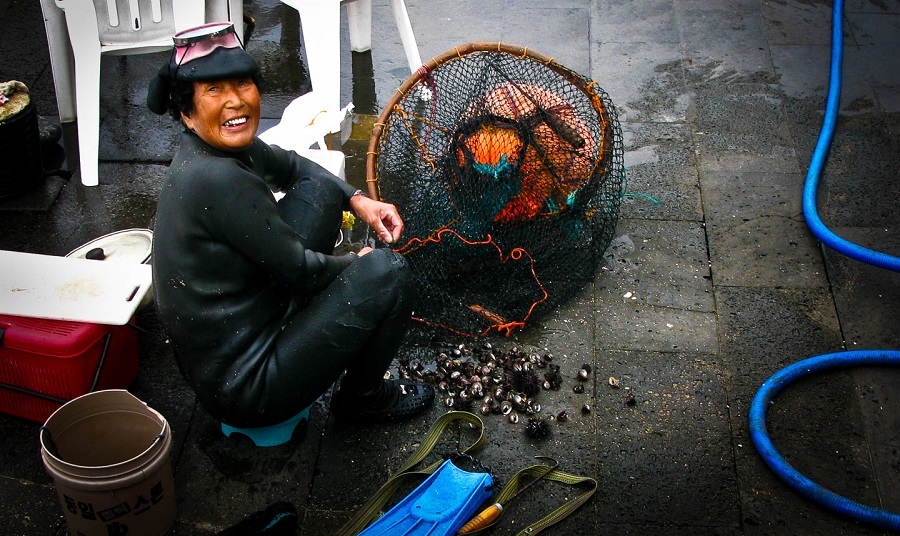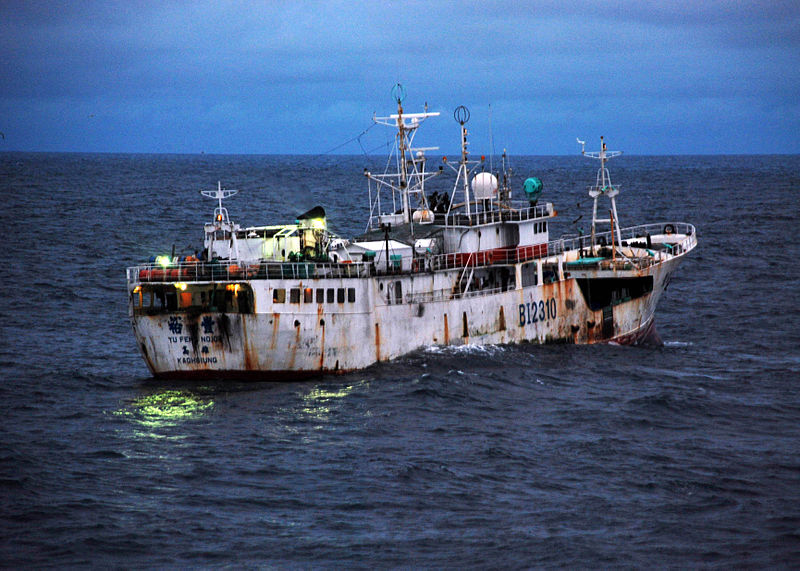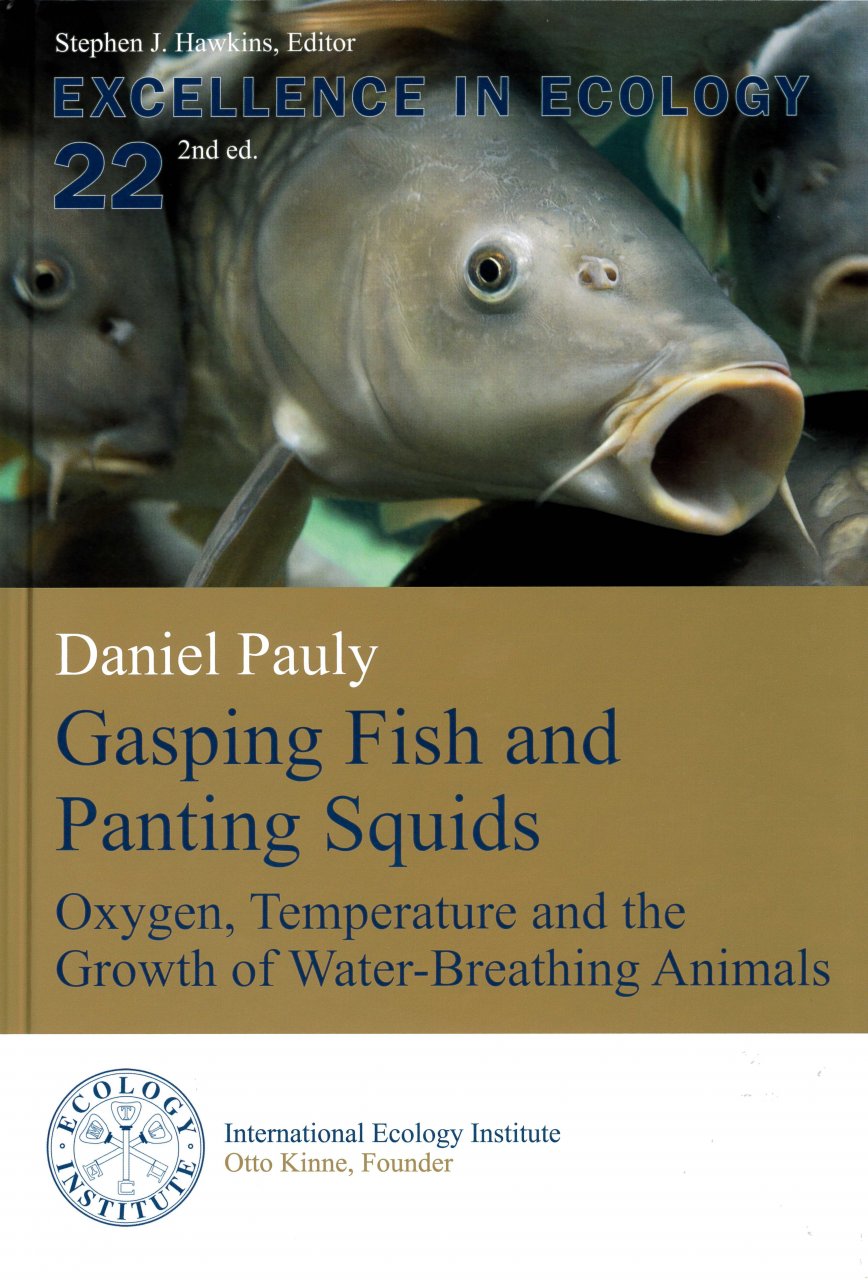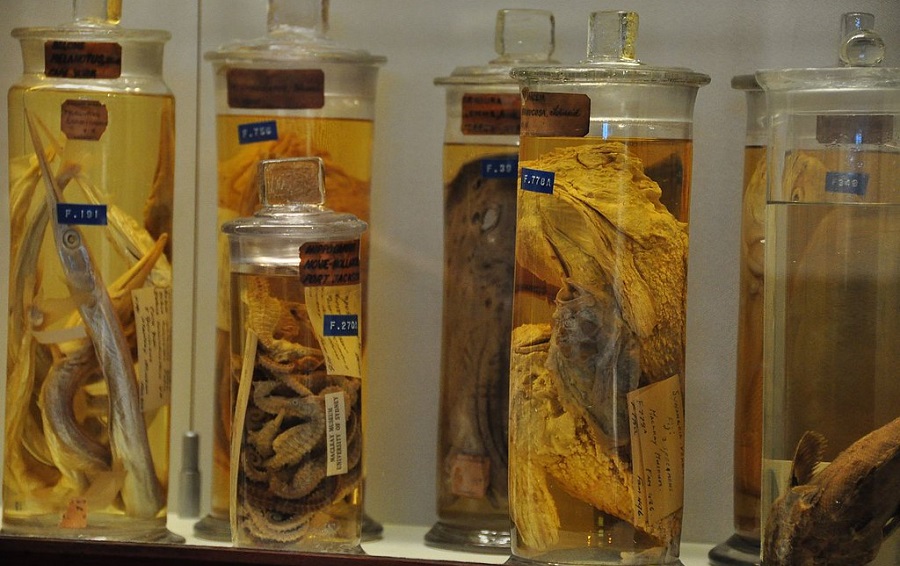
Preserved specimens. Image by Merryjack, Flickr.
The discoloured fish that rest in glass jars in museums across the world are normally used by specialists as references to study the traits that identify certain species. But a new study proposes an additional use for such ‘samples.’
Published in the Journal of Applied Ichthyology, the paper proposes using such specimens to estimate the length-weight relationships of fish that are hard to find alive in their natural environment.


